Carbon, energy, and water
The primary cause of climate change is carbon dioxide emissions; carbon dioxide is responsible for 64% of man-made global warming and carbon dioxide levels have increased by about 45% since the Industrial Revolution began. It is therefore important that we measure our carbon emissions and work to reduce them.
Carbon emissions fall into 3 ‘scopes’:
- Scope 1 – refers to direct emissions from the combustion of fossil fuels. For BCU this means the consumption of gas, gas oil, petrol and diesel, and refrigerants across the estate.
- Scope 2 – refers to the indirect emissions that BCU is responsible for from consuming electricity.
- Scope 3 – refers to the indirect emissions created elsewhere because of BCU’s consumption of products and services. This covers everything associated with the organisation including water and wastewater treatment, business travel, commuting, purchases, construction, waste etc.
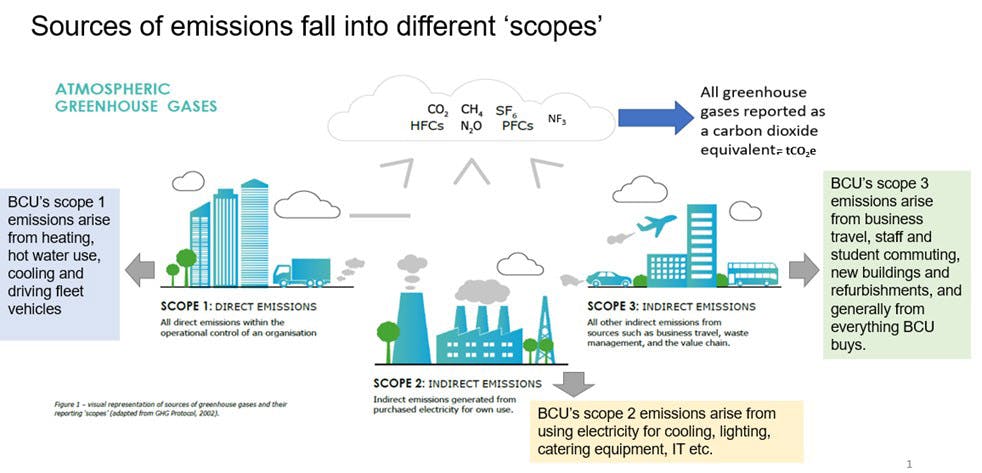
BCU declared a Climate Emergency in September 2019, which signals our commitment to reducing carbon emissions over the next decade.
What are we doing?
BCU is targeting net-zero in scopes 1 & 2 by 2030 and scope 3 by 2037/28. The trajectory BCU will follow is aligned to the Science Based Targets initiative.
An updated carbon management strategy is being developed by the Energy Manager that will outline how BCU achieves its net-zero targets. This is due for publication in spring 2024.
BCU will set a new baseline year using the current financial year 2022/23. Progress against the targets will be reported in the Annual Environmental Report and updated on our website.
BCU has been calculating emissions related to scope 1 & 2 since 2005/06 and has nearly halved emissions since then.
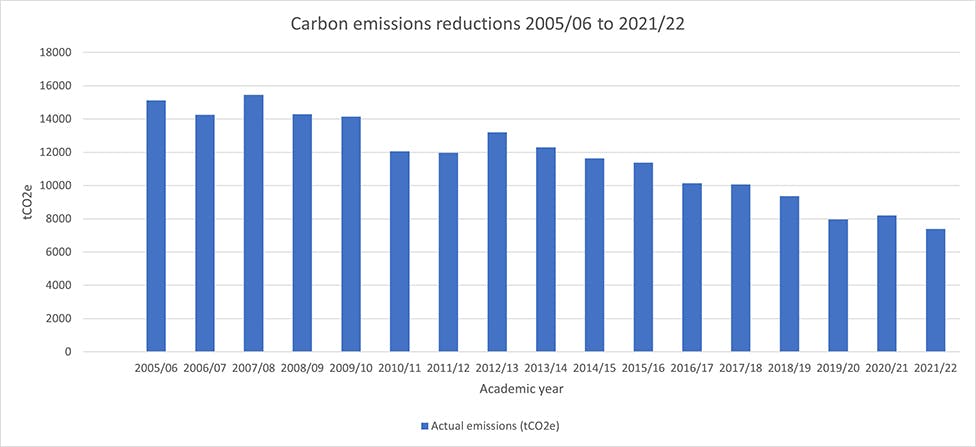
BCU’s Scope 1 & 2 carbon emissions have fallen during this period because:
- The emissions factor applied to electricity consumption has fallen dramatically due to the increasing contribution of renewable and the reduction of coal-fired generation to the grid.
- BCU has moved out of older, more energy intensive building stock into newer buildings.
- BCU has continued to invest in energy efficiency improvements and managing our energy waste.
Two major projects are underway that will significantly reduce our scope 1 and 2 emissions:
- Public Sector Decarbonisation Scheme – BCU has been awarded £3.3m in grant funding to carry out decarbonisation works at Seacole Building and Pavilion. Projects to be delivered as part of the works include swapping gas boilers for air source heat pumps, installing solar panels, cavity wall insulation, solar film, and air quality sensors.
- Building Management System (BMS) consolidation and upgrade – During 2022/23 and 2023/24 BCU is consolidating all its different BMS systems onto one common platform and making upgrades to some buildings. This project will improve control over equipment that provides heating and cooling, which will deliver greater thermal comfort to occupants as well as energy savings.
Scope 3 carbon emissions
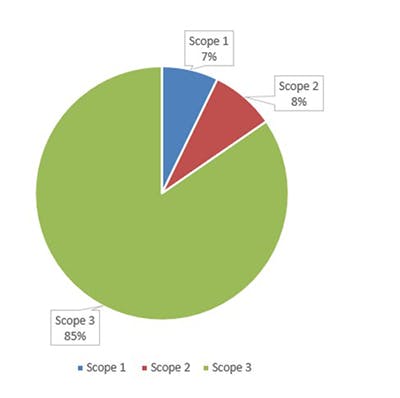
Scope 3 emissions account for the largest share of BCU’s emissions footprint.
Some Scope 3 emissions are already reported on an annual basis to HESA. As can be seen from the graph below, procurement represents the largest share of BCU’s overall emissions footprint.
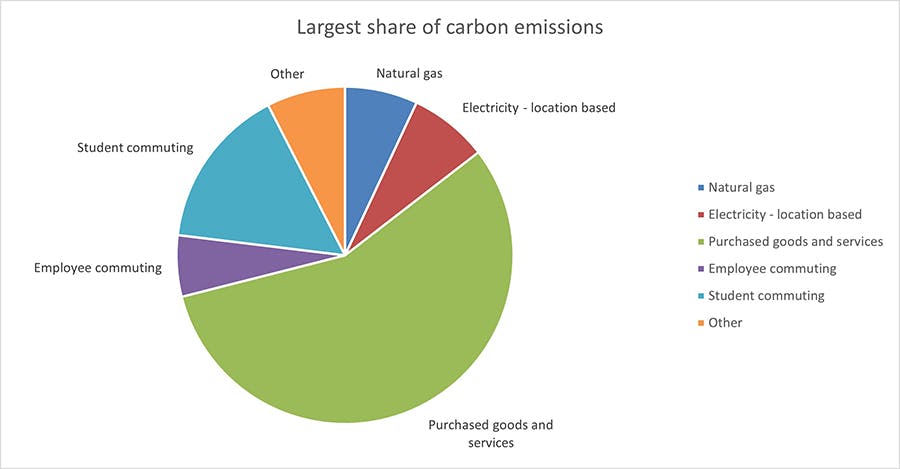
The most recent year’s emission’s data show that business services and IT procurement account for the most emissions. However, these figures are currently calculated using the spend-based method. BCU is undertaking in depth analysis of this area of emissions to see how we can engage more deeply with our supply chain and improve our practices to eliminate unnecessary emissions.
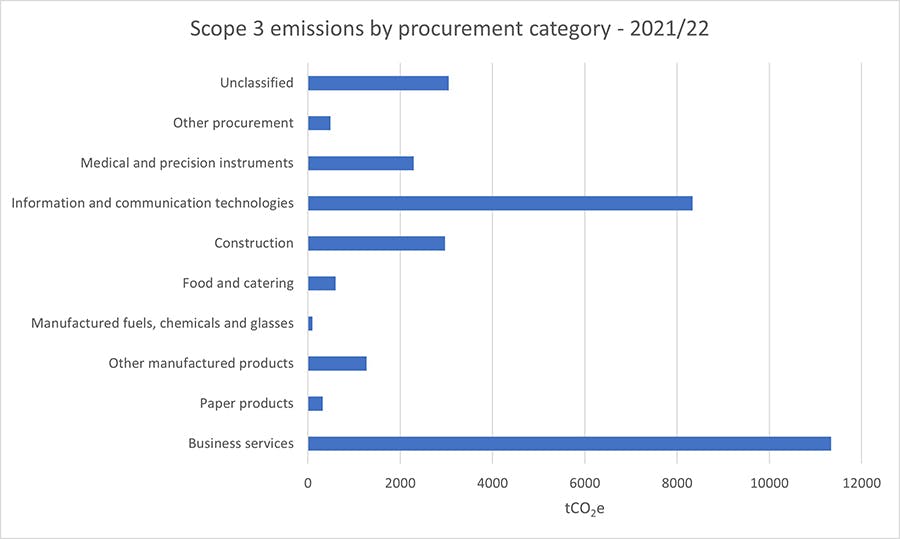
BCU will also use the coming academic year to clearly identify and quantify all Scope 3 emissions with an intention to have clear targets, and methods for reaching them, in place before 2025.
Water
Water is often taken for granted, but increased frequencies of drought across Europe, changes in lifestyle and a growing population means that our water resources are increasingly being put under pressure. At BCU we have made a commitment to managing our water use responsibly.
We ensure that all new taps, urinals, and showers fitted across the estate are of a specification that consumes less potable water than standard specifications for the same type of fittings. As a result, we have seen a reduction in our water use, as shown in the graph below.
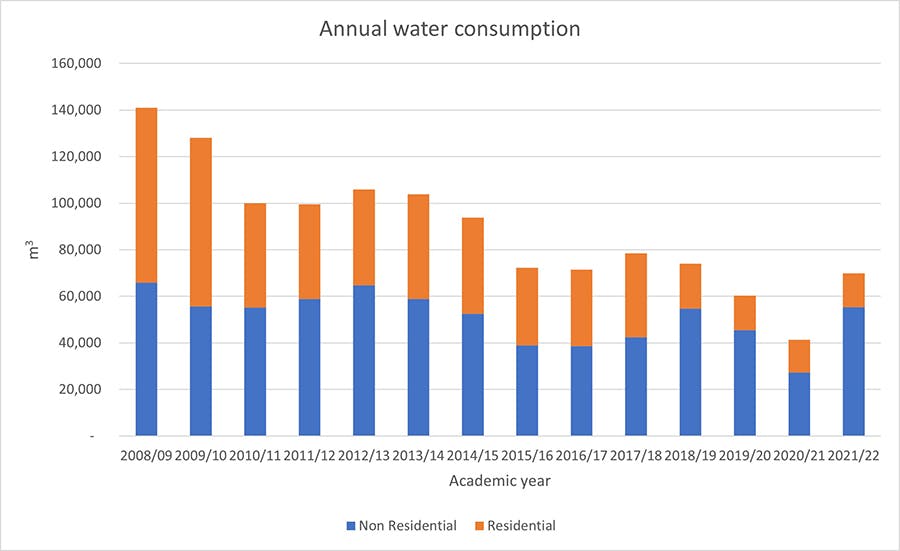
BCU has installed data loggers to all high consuming water meters. This has meant that a more accurate picture of water consumption has been achieved. It also enables the Energy Manager to target reductions in wasted water.